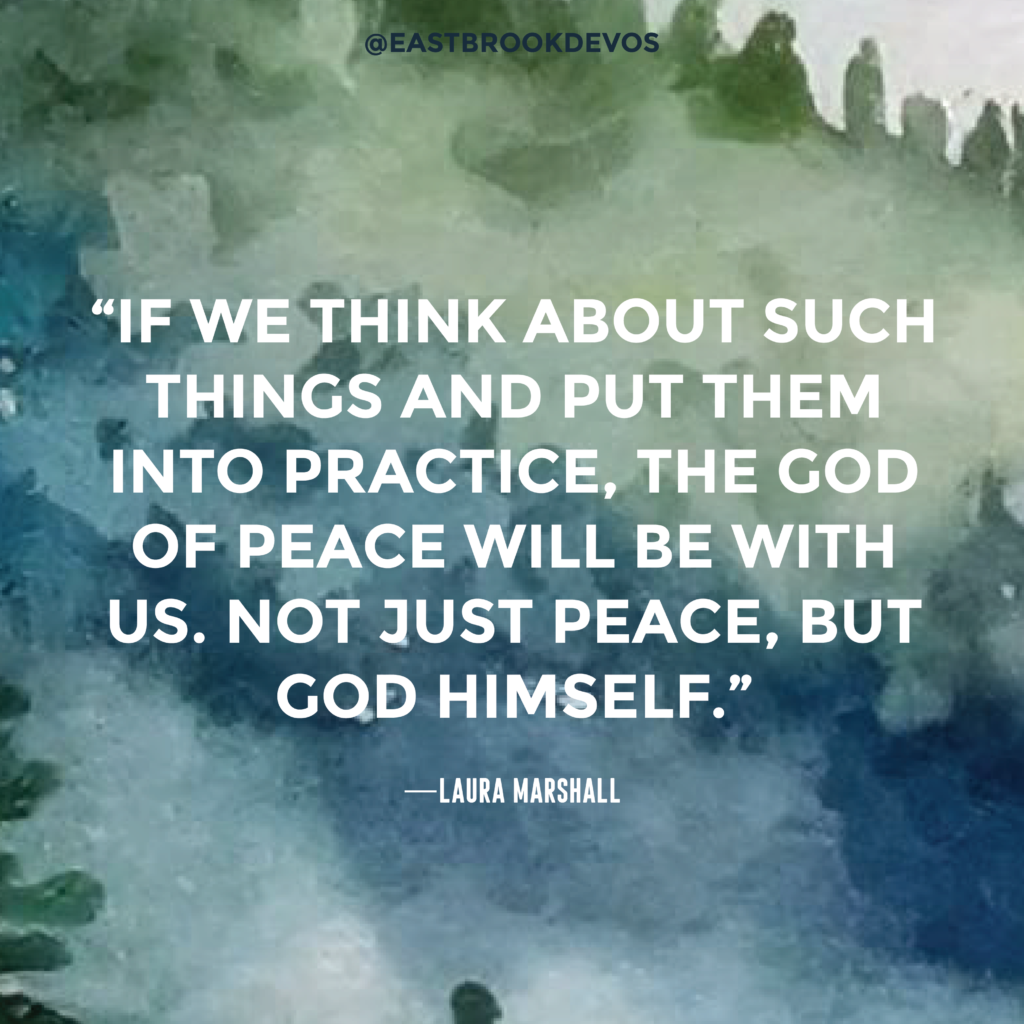I approach worry with the same dedication an Olympic athlete trains for their sport. I train daily and continually. I lie awake at night thinking of new issues to worry about; I wake early to worry from a new perspective to ensure I’ve been thorough.
All this training. It’s exhausting, really.
But Philippians 4:8-9 challenges us to do the opposite. What Paul is challenging us with in these verses is both countercultural and revolutionary: he’s inviting us to develop a healthy and flourishing thought life.
First, some context: Paul is in prison and imminent death was a real possibility. He’d already survived multiple beatings, an attempted stoning, a shipwreck. Although this wasn’t the first time Paul faced death, he wasn’t sure what the outcome would be. He writes this letter to people he loved, knowing these may be his final words to them.
In verse 8, the phrase “think about” is from the Greek word logizomai, which expresses the idea of meditating, dwelling on, or pondering with prolonged scrutiny. Said another way, verse 8 instructs us to protect and govern what will shape our thought life and verse 9 has to do with our actions. Paul is not teaching us to “think positive thoughts” with the blind hope everything will magically work out—it’s far more profound and beautiful than that: Paul is giving us a roadmap to bring about the greatest flourishing of our minds. He’s showing us how to ground our minds in truth by dwelling on things that are beautiful and true, noble and pure. Dwell in that place. Set up your tent there. Plant trees and gardens there. Raise your family there. And by choosing to dwell there, we are tending to the garden of our own minds and participating in the nourishment of our own souls.
Lean in because here’s the most beautiful part of Paul’s letter: it’s an invitation. If we think about such things and put them into practice, the God of peace will be with us. Not just peace, but God himself.
And there’s one less thing to worry about.
For reflection:
- Since Paul tells us to “think about” true, noble and pure things, how will you begin to make that a daily practice?
- How do you think your life would be different if you did dwell on those things every day?
by Laura Marshall
Recommended Posts

A New Ordinary
March 30, 2024

Practice: Examen
March 29, 2024

A Good Friday
March 28, 2024



